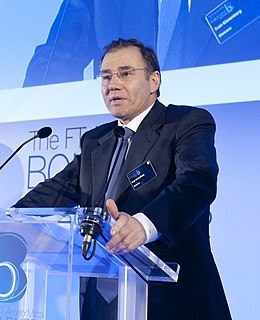A Quote by Joe Lonsdale
Private equity firms working closely with venture capitalists and technologists may be able to unlock assets that others have not leveraged and build technology cultures to iterate on solutions that make these assets more productive.
Related Quotes
Banks don't want certain asset classes, and that's created opportunities for private equity, hedge funds, Silicon Valley. In this case I think he was referring to some of the European banks shedding assets, and the big buyers are probably not going to be big American banks. Someone like Blackstone may have a very good chance to buy those assets, leverage them, borrow up a little bit, and do something good there.
































